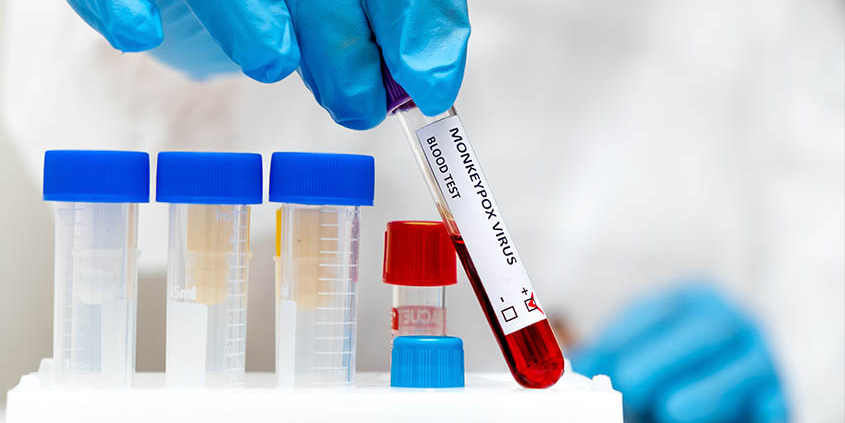Monkeypox – now a Global Public Health Emergency: Should we be worried?
While we are still learning if we can live with Covid-19, another new illness has emerged and is spreading throughout our communities. Monkeypox is here, and although there is some information out there, much is inaccurate or not clearly explained, so we know why this is of concern. I fear the lessons from the ongoing SARS-2 pandemic on early information sharing, thus enabling people to take care of themselves by educating the population, have not been learned.
The WHO has now classified the infection as a Public Health Emergency of International Concern, which suggests this infection is likely going to spread worldwide and potentially become a new pandemic. How worried should we be?
When and where?
Monkeypox was identified in the UK during May 2022 and is also seen throughout much of Europe and the Americas, with cases as far afield as Australia. There are now over 16,000 cases worldwide, and deaths have been reported in Brazil and India.
What is Monkeypox?
Monkeypox is a virus of the smallpox family that primarily affects monkeys and other small mammals. It is endemic in West-Central Africa, particularly in Nigeria. An endemic infection is one which exists in the community, much as the common cold or chickenpox are endemic in Europe.
What does it cause?
The virus causes severe muscular pains, fever, enlarged and extremely tender lymph nodes, followed a few days later by a pimply, then blistering rash which leaves noticeable scars. The rash is like a very severe chickenpox rash, although, unlike chickenpox, all the spots come at the same time. The spots are round, with a slight depression in the centre. They form blisters, then burst and then scab over, which takes up to four weeks.
The illness is usually self-limiting, meaning that most affected persons recover without treatments, but it has a quoted fatality rate of up to 6% in this outbreak.
How does it spread?
Monkeypox is spread by close contact and droplet spread, so it can be caught from infected persons by:
- respiratory droplets during prolonged face-to-face contact, e.g., talking and whispering
- intimate physical contact, including kissing and sexual intercourse
- directly touching the infectious rash or body fluids of an infected person
- touching clothing, bedding, and other materials that have been in contact with an infected person’s rash or body fluids
If a person becomes infected with Monkeypox, the incubation period before they begin to show symptoms can be anything from 5 to 21 days. During this period, they can pass this infection to others by some of the mechanisms above.
Who?
The present contagion is mainly centred in the LGBTQIA community, as around 95% of identified cases have been in men who have sex with men.
HOWEVER, this is not a sexually transmitted disease. It will be dangerous and pejorative to classify this as an illness that only affects gay or bisexual men, as it will make it harder for people to know they have had exposure or to dismiss the infection as a possibility.
It is recommended that if you develop a fever and muscular achiness, with enlarged glands which are very tender, ideally you should isolate in case this is Monkeypox, as it can be passed on before spots arrive. If there are no spots after a week, then the illness was not Monkeypox. If spots appear, then a diagnosis can be made, and we then recommend isolation until the spots have all scabbed over, as you can no longer pass on the infection after they are dry.
So, in summary:
- Monkeypox is a known illness that is usually seen in Africa, but which is now circulating more widely.
- The death rate in this round of infection is around 6%.
- The illness can take up to three weeks to develop after exposure
- It can take up to a month to recover.
- It is spread by touch and close contact, which includes sexual contact.
- It is not aerosol airborne but can spread by exhaled droplets.
- A vaccination is available via the NHS for persons exposed to confirmed cases.
- Prevention is achieved by avoidance – masks and gloves if you cannot avoid contact with a case.
- If you think you have Monkeypox, stay in until you are sure.
- If you have proven exposure to Monkeypox, a vaccine is available to prevent severe infection.
- Isolation period once illness has started is a week initially, as no rash = not Monkeypox.
- If it is Monkeypox, then a full month at home is required.
For more advice, call 08000 483 330 to arrange a consultation with Dr Tickle.



